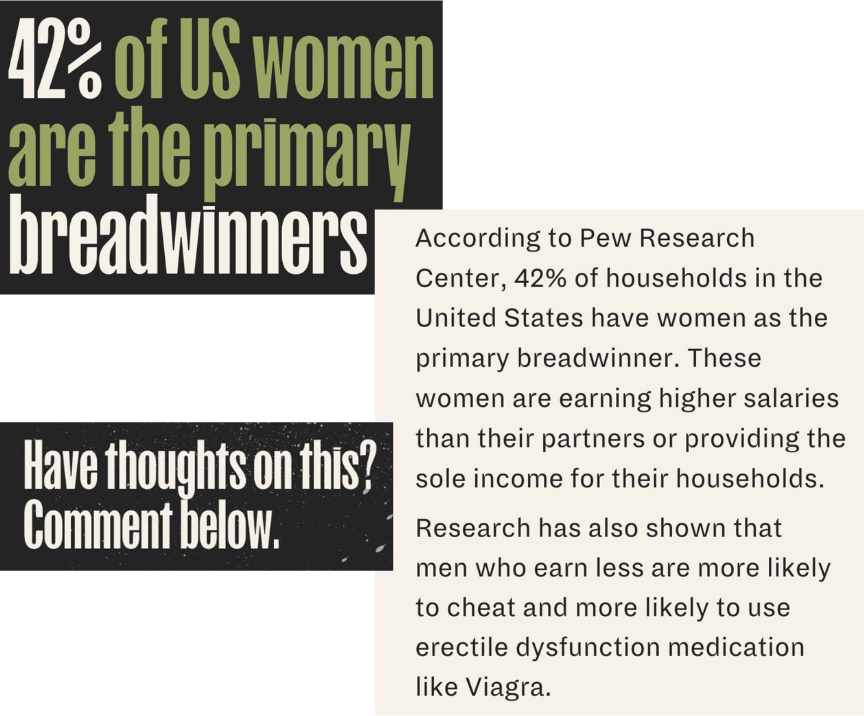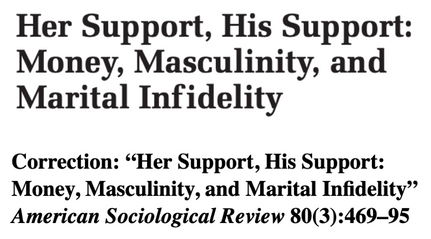I just saw the following carousel post and wanted to share my thoughts:

Let's start with the study about erectile dysfunction and spousal income:

This comes straight from the Salon website, but what isn't mentioned is the researchers found that this effect only exists for couples where the man out earned the woman prior to marriage. Pierce, Dahl, and Nielsen (2013) also found that this effect does not exist for unmarried cohabitants.
This suggests that the social construct of marriage plays a critical role in how men view wage comparison. This is what Vink et al. (2022) concluded:
Men and women living in countries with a traditional gender-stereotypical culture (e.g., Netherlands, Hungary) report lower relationship quality when women earned more than their partners while relative income differences don't affect the relationship quality of participants living in egalitarian countries (e.g., Sweden, Finland).
Again suggesting that dominant beliefs and ideologies in society impact couples in non-traditional relationships. Additionally, Pierce, Dahl, and Nielsen (2013) found that the impact of wage comparison on sexual dysfunction decreases with the age of the husband.
As for the claim that "men who earn less are more likely to cheat," I believe this comes from Munsch (2015):

Which originally found that economic dependency increases infidelity for both men and women, but an analysis and correction found these effects weren't as robust as initially reported.
The post then mentions research about women's preferences for male partners who out earn them:

And I can't help but think this might have something to do with the fact that mothers are much more likely than fathers to report experiencing significant career interruptions in order to attend to their families’ needs (Pew Research Centre, 2013). And are more likely to report that they quit a job to care for a family member (Pew Research Centre, 2015).
Then there is the issue of parental leave systems which, according to the OECD Family Database (2022), give longer periods of maternity leave compared to paternity leave:

So, it doesn't surprise me that women have a preference for men who can financially provide for their family because we have a society in which women are economically impacted by parenthood much more than men and fathers aren't supported to stay home.
The post implicitly acknowledges this when mentioning gender equality:

In more gender equal contexts, married couples are more likely to pool and manage their money together, whereas married couples in countries with less gender equality assigned one money manager (Pepin & Cohen, 2020).
In fact, all evidence for the gendered beauty-status exchange model, whereby an economically successful, older man partners with a beautiful, younger wife, is almost eliminated when controlled for matching (McClintock, 2014).

